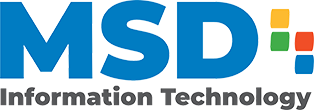Antivirus protection isn’t just a way to block computer viruses, as the name may apply. (Some people think that all intrusions into a computer are called viruses, but that is a misnomer.)
For example, here is a list of the ways a good antivirus program can assist in protecting a computer with data on it:
- Antivirus – Starting with the obvious, an antivirus program will protect against computer viruses, or attacks that mean to damage a computer.
- Rootkit protection – This prevents rootkits, which are imbedded deep inside a computer in order to mask other malware, from establishing in a computer.
- Bot protection – This alerts a subscriber when a cybercriminal is attempting to remotely take over a computer to use as a source for automatic spamming and other crimes. Bots are what botnets are based on (groups of ordinary people’s computers that have been
- Worm protection – By definition, worms attack networks rather than computers themselves. However, worms can carry payloads of malware that can be deposited onto computers, which will then do damage. Antivirus software can prevent this sort of attack – stop computer worms.
- Trojan horses – Antivirus software can’t stop a person from being duped into thinking that a desired downloaded program or file is legitimate. However, antivirus software can warn them when malware is detected within a Trojan horse file.
- Spyware – Antivirus software can detect when a computer has been infected with spyware, or software that’s meant to either collect data of usage or steal information, even when the source came from a reputable, legitimate source.
- Messaging protection – Whether it’s instant messages or e-mails, antivirus software can warn users when these messages contain dangerous attachments or fraudulent links. Instant messaging security is important today.
While having antivirus software protection is an important step in keeping a computer free of malware, there are still some other things a person can do to keep their computer as clean as possible.
- Keep computer software updated – Operating system software is one of the key points in which cybercriminals attempt to exploit vulnerabilities in remote computers. However, to keep up with known attacks, operating system producers constantly update their software for free in order to help protect their patrons. These updates are free, and can be set up to happen automatically.
- Practice safe Internet habits – There are many ways that cybercriminals can insert malware onto computers, and some of these methods involve fooling ignorant users into accepting the offending software freely. Never open attachments or follow links from unknown sources. Never give out confidential information, such as passwords, even if it appears to come from an administrator. Use strong passwords on a regular base.
MSD are partnered with many Antivirus providers.
We believe that some solutions may work fine for some businesses but not for others.
Can you benefit from a cost saving by hosting your own Antivirus console? Do you need the freedom of a cloud hosted solution which still allows tracking and management of threats no matter where your staff are?
MSD can provide a solution to fit your business needs and budget.
